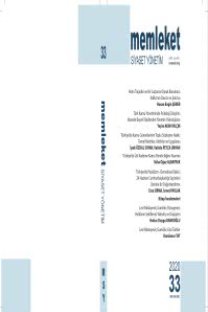ANTİK YUNAN'DA TOPLUMSAL BİR KURUM OLARAK EVLİLİK VE İKİ OYUNDA ERKEKLERİN İKİ EŞLİLİK TERCİHLERİ: MEDEA VE TRAKHİSLİ KADINLAR
Geleneksel tanımıyla aile bir kadın ve erkeğin, ömürlerinin kalan kısmını beraber geçirmek üzere sevgi, saygı ve güven üzerine kurulan evlilikleriyle başlayan ve toplumun en küçük temel birimi olan kurumdur. Birlikte geçirilen yıllar çocuk, torun ve akrabaların artmasıyla birlikte aileyi genişletir. Ancak tarih boyunca hemen her toplumda yaşanagelmiş bir durum vardır ki, çoğu zaman aile içinde benzer sebeplerle ortaya çıkmış, benzer olaylarla sonlanmıştır. Özellikle ataerkil toplumlarda erkeğin ikinci evlilik yapması ve bunu ya ilk eşinden ayrılarak ya da aynı veya ayrı bir evde iki eşli yaşayarak sürdürmesidir bu durum. Bu yazıda, Batı medeniyetinin kültürel başkenti olarak kabul edilen ve genel olarak tek eşliliğin benimsendiği Antik Yunan toplumunda erkeklerin ikinci evlilikleri, iki Antik Yunan trajedisinde iki mitolojik öykü üzerinden değerlendirilecektir. Sophocles'in Trakhisli Kadınlar'ında Herakles gençlik ve güzellik, Euripides'in Medea'sında ise Jason güç ve para gerekçesiyle ikinci kez evlenir. Eşleri Deianeira ve Medea'nın kıskançlık dolu tepkileri ve kabullenemeyişleri, kocalarının mantık ve bencillik dolu ikna çabaları, o toplumun sağduyusu ve akıl hocası rolündeki koronun yorum ve telkinleriyle bu iki oyun, 2400 yıl önceki Yunan toplumunun aileye ve çok eşliliğe bakışını net bir şekilde yansıtmaktadır. Tiyatronun toplumun aynası olduğu düşünüldüğünde, bu çalışmada ele alınacak oyunlar tarihsel, antropolojik, folklorik ve kültürel çalışmalara katkıda bulunacak ve Antik Yunan toplumunu günümüz toplumlarıyla karşılaştırma şansı sağlayacaktır.
MARRIAGE AS A SOCIAL INSTITUTION IN ANCIENT GREECE AND MEN'S PREFERENCE FOR BIGAMY IN TWO PLAYS: MEDEA AND WOMEN OF TRACHIS
Traditionally, family is an institution that starts with the marriage of a man and woman, based on their mutual respect, love and trust so that they spend the rest of their lives together, and that forms the smallest unit of society. The years spent together expand the family with the increased number of children, grandchildren and relatives. However, there is a specific case that has come to take place throughout the history, which usually arises from similar causes within the family and usually leads to similar results. This case is the second marriage of the man especially in patriarchal societies, either by divorcing his first wife or by leading his married life with two wives in the same or different house. In this presentation, the second marriages of men in Ancient Greece, which is today accepted as the cultural capital city of the western civilization and where generally monogamy was adopted, will be analysed through two mythological stories in two Ancient Greek tragedies. Heracles makes a second marriage for youth and beauty in Women of Trachis by Sophocles and Jason for power and property in Medea by Euripides. With the husbands' attempts to convince their wives logically albeit selfishly in the face of their wives' reactions of jealousy and inability to espouse these marriages and with the comments and recommendations of the chorus assuming the role of common sense and mentor of that society, these two plays reflect the approach of the Greek society of 2400 years ago to polygamy clearly. Given that theatre is the mirror of and to the society, these plays will contribute to historical, anthropological, folkloric and cultural studies, and offer a chance to make a comparison between the society of Ancient Greece and that of the present time.
___
Arora N.D, Political Science for Civil Services Main Examination, Tata McGraw- Hill Education, Columbus, 2010.Demosthenes, Speeches 50-59, (Çev. Victor Bers), University of Texas Press, Texas, 2003.
Euripides, Elektra, (Çev. Yılmaz Onay), Eski Yunan Tragedyaları, Mitos-Boyut Tiyatro Yayınları, İstanbul, 2008.
Euripides, Medea, (Çev. Ari Çokona), Hasan Ali Yücel Klasikler Dizisi, Türkiye İş Bankası Kültür Yayınları, İstanbul, 2014.
Freeman Sara & Maya Roth, International Dramaturgy: Translation & Transfor- mations in the Theatre of Timberlake Wertenbaker, Peter Lang, London, 2008.
Gerson Lloyd G. (ed.), Aristotle: Politics, Rhetoric and Aesthetics, Taylor & Francis, Abingdon, 2009.
Konstan David, The Emotions of the Ancient Greeks: Studies in Aristotle and Classi- cal Literature, University of Toronto Press, Toronto, 2006.
Luschnig C.A.E., Granddaughter of the Sun: A Study of Euripides' Medea, Brill, Boston, 2007.
Milton Don, Polygamy and Monogamy, Born Again Publishing Inc., Gilbert, 2009.
Nevett Lisa C., House and Society in the Ancient Greek World, Cambridge University Press, Cambridge, 2001.
Plutarch, Plutarch's Moralia - VI, (Çev. W. C. Helmbold), Harvard University Press, Cambridge, 1962.
Solski Ruth, Ancient Greece Gr 4-6, On the Mark Press, Napanee, 2007.
Sophokles, Trakhisli Kadınlar, (Çev. Ari Çokona), Hasan Ali Yücel Klasikler Dizisi, Türkiye İş Bankası Kültür Yayınları, İstanbul, 2014.
Stuttard David (ed.), Looking at Medea: Essays and A Translation of Euripides' Tragedy, A & C Black, Edinburgh, 2014.
Velásquez Eduardo A., Nature, Woman and the Art of Politics, Rowman & Little- field, Lanham, 2000.
Sophocles, Women of Trachis, (Çev. Williams C. K. & Gregory Weimer Dickerson), Greek Tragedy in New Translations, Oxford University Press, Oxford, 2001.
Wilson Nigel, Encyclopedia of Ancient Greece, Routledge, Oxford, 2013.
Yalazı Esra & Sultan D. Küçüker, "Ksenophon'un Oikonomikos Adlı Eserinde Evlilik ve Kadına Yaklaşım", Archivum Anatolium, 9/2, 2015, ss. 57-79.
- ISSN: 1306-8202
- Yayın Aralığı: 2
- Başlangıç: 2006
- Yayıncı: Yerel Yönetim Araştırma Yardım ve Eğitim Derneği (YAYED)
